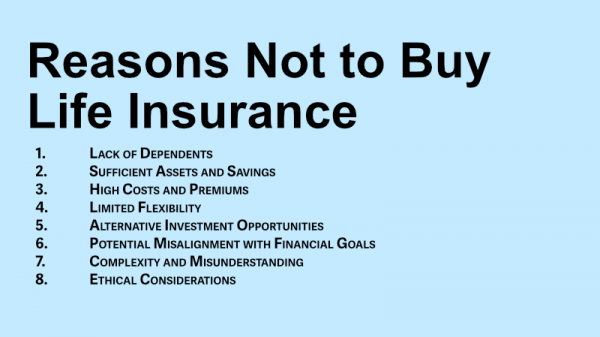What Reasons Will Life Insurance Not Pay in the USA? A Comprehensive Guide
Life insurance is a critical financial safety net for many families in the USA. However, there are specific circumstances under which a life insurance policy may not pay out the death benefit. Understanding these reasons is essential for policyholders and beneficiaries alike. This comprehensive guide will explore the various reasons why life insurance may not pay in the USA, including legal, contractual, and situational factors, supported by relevant statistics and insights specific to the American insurance market.
In the USA, life insurance policies are legal contracts between the policyholder and the insurance company. While these contracts are designed to provide financial protection to beneficiaries upon the death of the policyholder, there are conditions and exclusions that may lead to a denial of the claim. According to the National Association of Insurance Commissioners (NAIC), less than 2% of life insurance claims were denied in 2019, but understanding the reasons behind those denials is crucial.
1. Misrepresentation or Fraud
Misrepresentation or fraud is one of the primary reasons for a life insurance claim denial in the USA. When applying for life insurance, applicants are required to provide accurate information regarding their health, lifestyle, and other relevant factors. If an insurance company discovers that the policyholder intentionally provided false information, such as lying about a smoking habit or a pre-existing medical condition, they may deny the claim. The Coalition Against Insurance Fraud estimates that fraud costs the American insurance industry over $40 billion annually. Being truthful and transparent during the application process is crucial to avoid this pitfall.
2. Suicide Clause
Most life insurance policies in the USA include a suicide clause, typically lasting for two years from the policy’s inception. If the policyholder dies by suicide within this period, the insurer will not pay the death benefit. The Centers for Disease Control and Prevention (CDC) reported over 47,000 suicides in the USA in 2019. Understanding the terms and conditions related to this clause is essential for policyholders and beneficiaries.
3. Homicide Involving a Beneficiary
In cases where a beneficiary is involved in the homicide of the policyholder, the insurer may deny the claim. This follows the “Slayer Rule” in many states, which prevents a person from benefiting financially from a crime they committed. This legal principle ensures that life insurance proceeds do not reward criminal behavior.
4. Exclusions for Risky Activities or Occupations
Some life insurance policies exclude coverage for deaths resulting from specific risky activities or occupations. For example, if a policyholder dies while engaging in activities such as skydiving, racing, or working in a hazardous occupation, the insurer may deny the claim. The Bureau of Labor Statistics reported 5,333 fatal work injuries in the USA in 2019. It’s essential to understand any exclusions related to hobbies or work when purchasing a policy.
5. Lapsed Policy Due to Non-Payment of Premiums
Life insurance policies require regular premium payments to remain in force. If a policyholder fails to pay the premiums and the policy lapses, the insurer is not obligated to pay the death benefit. Maintaining timely payments and understanding the grace periods and reinstatement options can prevent this unfortunate situation.
6. Death Occurring During the Contestability Period
Most life insurance policies in the USA include a contestability period, typically lasting two years after the policy is issued. During this time, the insurer can investigate and deny claims for material misrepresentations or omissions on the application. Even unintentional errors or omissions can lead to a denied claim during this sensitive period.
7. Exclusions for Specific Causes of Death
Some life insurance policies may exclude specific causes of death, such as drug overdose, acts of war, or deaths occurring in certain locations. Understanding these exclusions and ensuring that the policy aligns with the policyholder’s lifestyle and circumstances is vital to avoid unexpected claim denials.
Life insurance is a complex legal contract, and understanding the reasons why a claim may be denied is essential for policyholders and beneficiaries in the USA. From legal considerations to specific contractual exclusions, awareness and careful planning can ensure that life insurance serves its intended purpose as a financial safety net.












